April 30, 2025 | 06:55 GMT +7
April 30, 2025 | 06:55 GMT +7
Hotline: 0913.378.918
April 30, 2025 | 06:55 GMT +7
Hotline: 0913.378.918
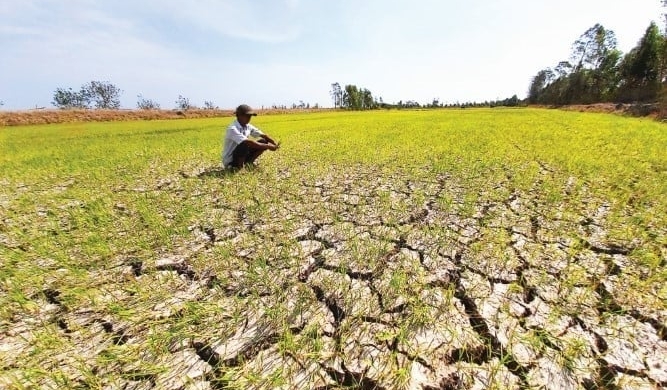
From now until mid-May 2024, the Mekong Delta may experience 3 waves of saltwater intrusion. Photo: VGP.
Since the beginning of the year until now, the Mekong Delta has continuously experienced saltwater intrusion and prolonged heat waves. However, local authorities have proactively implemented many response measures under the direction of the Government and the Prime Minister, reducing damage to agricultural production and affecting people's lives.
According to forecasts of the Ministry of Natural Resources and Environment and the Ministry of Agriculture and Rural Development, from now until mid-May 2024, the Mekong Delta may experience three waves of saltwater intrusion. The risk of lack of fresh water for people's daily activities may continue, especially on the islands.
Freshwater reserves have declined after previous heat waves, droughts, and prolonged saltwater intrusion. Therefore, the Prime Minister issued Official Dispatch No. 34/CD-TTg dated April 8, focusing on ensuring domestic water supply for people during peak saline intrusion periods in the Mekong Delta.
The Prime Minister requested the ministries of Agriculture and Rural Development (MARD), Natural Resources and Environment (MONRE), Construction (MOC), and the Mekong Delta provinces to closely monitor the situation and continue implementing measures to cope with the heat. , drought, water shortage, and saltwater intrusion according to the instructions in the dispatch and previous instructions of the Prime Minister.
In particular, the Prime Minister requested localities to continue to organize reviews and firmly grasp information on the situation of each area, hamlet, hamlet, and household at risk of running water shortage.
The Head of the Government emphasized the review of households living in coastal areas, at the end of the water supply source, and residential areas on the islands to have appropriate specific plans to ensure domestic water sources for people determined not to leave people without running water.
Organize a review of freshwater reserves in the area to create a plan to balance and regulate freshwater sources for daily life and production according to the actual water resource conditions in each region. Use fresh water sources to supply water for people's daily activities.
The Chairman of the People's Committee of Provinces and Cities is responsible to the Prime Minister if people do not have running water.
Prime Minister Pham Minh Chinh assigned Deputy Prime Minister Tran Luu Quang to continue directing ministries, branches, and localities, especially provinces and cities in the Mekong Delta region, to deploy appropriate responses to the drought and water shortage situation and salinization.
The Minister of MARD continues to direct the monitoring of developments, specialized forecasts, and timely provision of information to localities and people.
MARD proactively directs localities to implement specific measures to prevent and combat water shortages and saltwater intrusion, limiting impacts on people's lives and agricultural production.
The Minister of MONRE continues to closely monitor developments, forecast, and provide timely and accurate information on water resources and saltwater intrusion in the Mekong Delta for authorities, localities, and people. People know and proactively implement appropriate prevention and response measures to avoid confusion and avoid passive or unexpected situations.
The Minister of MOC coordinates with the MARD and the People's Committees of provinces and cities in the Mekong Delta region to direct and deploy the work of ensuring domestic water supply for people and localities and other essential needs in urban areas and towns.
The Minister of Information and Communications directs and guides media and press agencies to continue to inform, propagate, and ensure timely and accurate information on the situation of drought, water shortage, and saltwater intrusion; avoid being negligent and subjective in leadership and direction, and at the same time do not confuse response work.
Some provinces in the Mekong Delta are now proactively responding to saltwater intrusion. Soc Trang province has allocated a budget of about 10 billion VND to connect and open the network to ensure a clean water supply for people in rural areas of severely affected districts such as Tran De, Long Phu, and Vinh Chau town.
In addition, the locality recommends that people proactively monitor salinity levels on rivers, canals, and ditches, especially at essential points at the beginning of watersheds, to collect water for production. Farmers are advised to use water sparingly and shift seasonal schedules for areas at high salinity risk to avoid saltwater intrusion.
According to a report by the Center for Community Support Development Studies (CECODES), Real-Time Analysis Company (RTA), and the United Nations Development Program (UNDP) Vietnam, salinity intrusion in the Mekong Delta this year has increased three times higher than in 2021.
Translated by Huong Giang
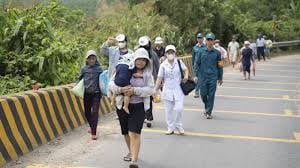
(VAN) The training event held in Hoa Phu (Da Nang) highlighted the importance of incorporating gender factors in order to protect communities from disasters.
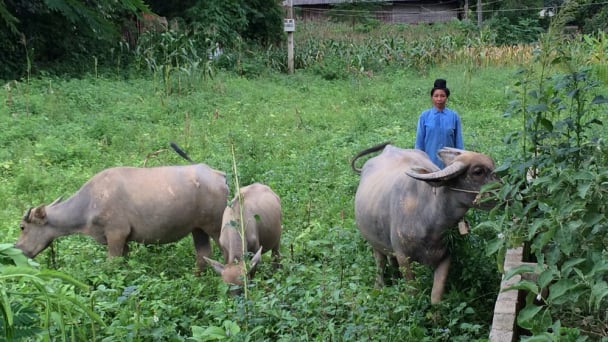
(VAN) Dien Bien province needs to develop alternative livelihoods and strengthen community monitoring to minimize conflicts with biodiversity conservation efforts.
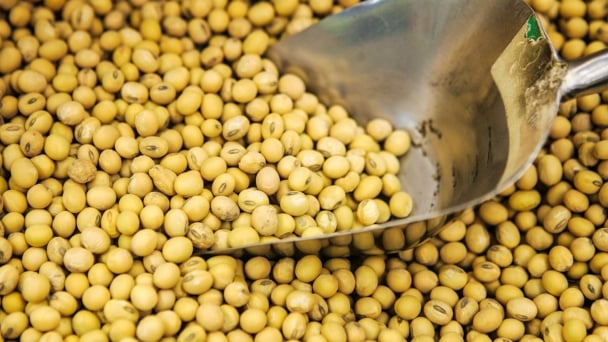
(VAN) The US-launched tariff confrontation has begun to hit American agricultural exports, particularly soybeans and pork, as China's Zhejiang Province is seeing a surge in Brazilian soybean shipments arriving at its ports.
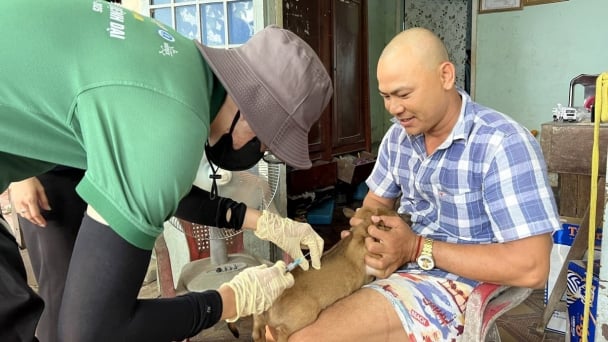
(VAN) Cooperation between organizations, businesses, and local communities has created success in rabies prevention in Duc Hue, Long An over the past 5 years.

(VAN) In a meeting with Japanese Prime Minister Ishiba Shigeru on the afternoon of April 27, General Secretary To Lam proposed that the two countries strengthen cooperation in high-tech agriculture.
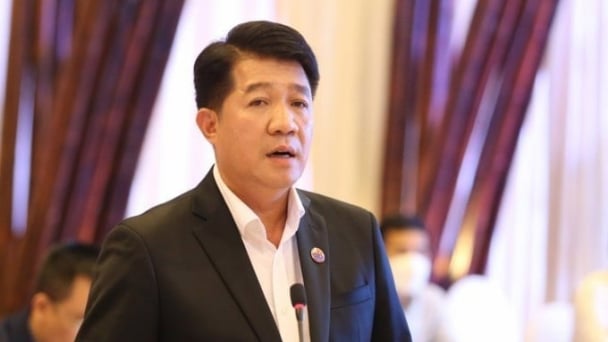
(VAN) 'Vietnam Agriculture and Nature Newspaper will become a specialized forum, quickly and accurately updating information on agricultural policies, environmental protection and sustainable development', said Mr. Vu Manh Hung, Chairman of Hung Nhon Group.

(VAN) Low vaccination rates, unknown origin of breeds, and lack of decisive action by the government are what causes avian influenza outbreaks.